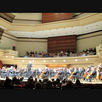Literary analysis of “The Story of an Hour” by Kate Chopin
- Sep 13, 2017
- 5 min read
In 2007, I published online my literary analysis of "The Story of an Hour" by Kate Chopin (it was originally written in 2005). Since then, my analysis became really popular and has been used numerous times by hundreds of students around the world. I kept finding my name in people's essays about "The Story of an Hour". However, later the site, where I originally posted my analysis, was closed. Therefore, I decided to post my literary analysis here.

Freedom as a Sense of Life in Kate Chopin’s “The Story of an Hour”
“The Story of an Hour” by Kate Chopin (1851-1904) is an impressive literary piece, which touches a reader’s feelings as well as mind. Although the story is really short, it is very rich and complete, and every word in it carries deep sense and a lot of meaning. The main character of the story, Mrs. Mallard, experiences in her life something that not everyone has - the luck to have the happiness of freedom - but the reader understands it only at the end of the story.
In the beginning, we find out that Mrs. Mallard is afflicted with heart trouble, and news about her husband’s death is brought to her “as gently as possible” (788). Her sister Josephine and her husband’s friend Richards, who bring this news to her, honestly believe that Mrs. Mallard would be very upset to hear it and that it could make her even more ill. Here the reader expects her to be upset and worries about her too, because she has heart trouble and it’s very possible that sad news can make her feel worse than usual. Yes, “she wept at once, with sudden, wild abandonment” (788), but it’s just a first emotional reaction to the news without deep comprehension of what had happened and how it can change her life.
She comprehends the news only later, and author shows us little by little how she comes to realizing it and what helps her understand it. She went to her room, and “there stood, facing the open window, a comfortable, roomy armchair. Into this she sank” (788). Reading these words the readers suddenly realize that something turns the story to a more positive, reassuring way. What makes us, readers, think so? Here we see two things that make us feel that way: “a comfortable, roomy armchair” as a symbol of security and comfort in spite of her husband’s death, and “the open window”, which here symbolizes connection to the world and to life.
The next, fifth paragraph, emphasizes these ideas even more and carries more details and fresh elements of the new, positive turn of the story. Through the open window she can see “the tops of trees that were all aquiver with the new spring life.” “The delicious breath of rain was in the air.” “Countless sparrows were twittering in the eaves” (788). All these parts of this paragraph show us that Mrs. Mallard gets in touch with life, starts to hear sounds and to smell scents that she didn’t hear and smell before. Why? What happened? Does she really start noticing it all only after her husband’s death? Yes, and the author gives us even more details, emphasizing it, not yet giving the answer why she starts feeling this way.
However, a careful reader understands the deep sense of the words about “patches of blue sky showing here and there through the clouds…” (789). These words didn’t appear in the story for no reason. All these details make us feel the growth of Mrs. Mallard’s excitement and make us understand the sign of the meaning of the blue sky as a symbol of freedom and future life.
In paragraph eight, Mrs. Mallard, “young, with a fair, calm face”, is sitting in the armchair with a “dull stare in her eyes”, which “indicated a suspension of intelligent thought.” (789). Reading these lines, the readers understand that something is going on in Mrs. Mallard’s head; something is changing everything in her mind. What is it? Mrs. Mallard still doesn’t realize it, “but she felt it, creeping out of the sky, reaching toward her through the sounds, the scents, the color that filled the air” (789). We understand that her soul starts to fill with happiness of freedom; freedom, which is in everything - in the sounds and the beautiful trees around, in the blue sky and in the songs of the birds.
However, for one moment she gets afraid allowing herself to be happy about her freedom: “she was striving to beat it back with her will” (789). This shows us that Mrs. Mallard is a “product” of her time and has to be dependent on society rules. She realizes that society would determine her thoughts of freedom inappropriate, but she can’t stop herself from feeling that way. A calm soul is necessary for a human being and is more important than society standards. By feeling happy she just proves this thought.
However, “she knew that she would weep again when she saw the kind, tender hands folded in death” (789) but it’s just a reaction that society expects her to have. What can compare to “a long procession of years that would belong to her absolutely” (789)! Here the author finally opens a reason why Mrs. Mallard feels this way about her husband’s death. “There would be no powerful will bending hers in that blind persistence with which men and women believe they have a right to impose a private will upon a fellow-creature” (789). These words show the picture of Mrs. Mallard’s family life. She was unhappy with her husband; she couldn’t have her own opinion and couldn’t show her own will; that’s why she is happy to be free!
Back then society didn’t accept a divorced woman but it accepted widows, and we realize that being a widow is the only way for Mrs. Mallard to get free. “Free! Body and soul free!” (789). We read these words and share with Mrs. Mallard her feelings, her excitement, and hopes. At this point Mrs. Mallard’s sister Josephine is looking ridiculous, with her words “Louise, open the door! You will make yourself ill.” (789). Because practically talking, Mrs. Mallard, being a woman who had numerous years under her husband’s will, finally gets an absolute freedom; a miraculous freedom that she even didn’t hope to get the day before. However, her sister is far from understanding it.
Expecting “spring days, and summer days, and all sorts of days that would be her own” (790), Mrs. Mallard goes out of the room as a “goddess of Victory” (790). From the first look, this point of the story seems to be the highest culminating moment of it, and here is the irony. The author prepared the main strong culmination right in the end, in three final paragraphs. Mrs. Mallard’s husband opens “the front door with a latchkey” (790). He enters “composedly carrying his grip-sack and umbrella” (790). He is carrying it “composedly”, because he doesn’t even know about the accident and that his name is on the list of those who died. Even more ironical here are “Josephine’s piercing cry” and “Richards’ quick motion to screen” (790) Brently Mallard from his wife’s eyes.
Mrs. Mallard dies “of joy that kills” (790). These words carry the absolutely opposite meaning than they read. We understand that the doctors are wrong thinking that she dies from happiness of seeing her husband again. She chooses rather to die than to live again under her husband’s will, especially after experiencing freedom, even just for one hour. This hour in a comfortable armchair in front of the open window made her feel happy and free; it made her understand the sense of her being, and it was the only real hour of her life.
Natalia Dagenhart
January 18, 2005
P.S. Please, check out my documentary "How the lockdown has changed my life: https://www.youtube.com/watch?v=fsXFOTPg9Fc
P.P.S. Dear Friends, as a bonus, I would like to invite you to listen to my inspirational song "Bird". Please, enjoy! I hope it will bring you inner peace, joy and happiness! https://www.youtube.com/watch?v=xvwhFWDVhA8























Comments